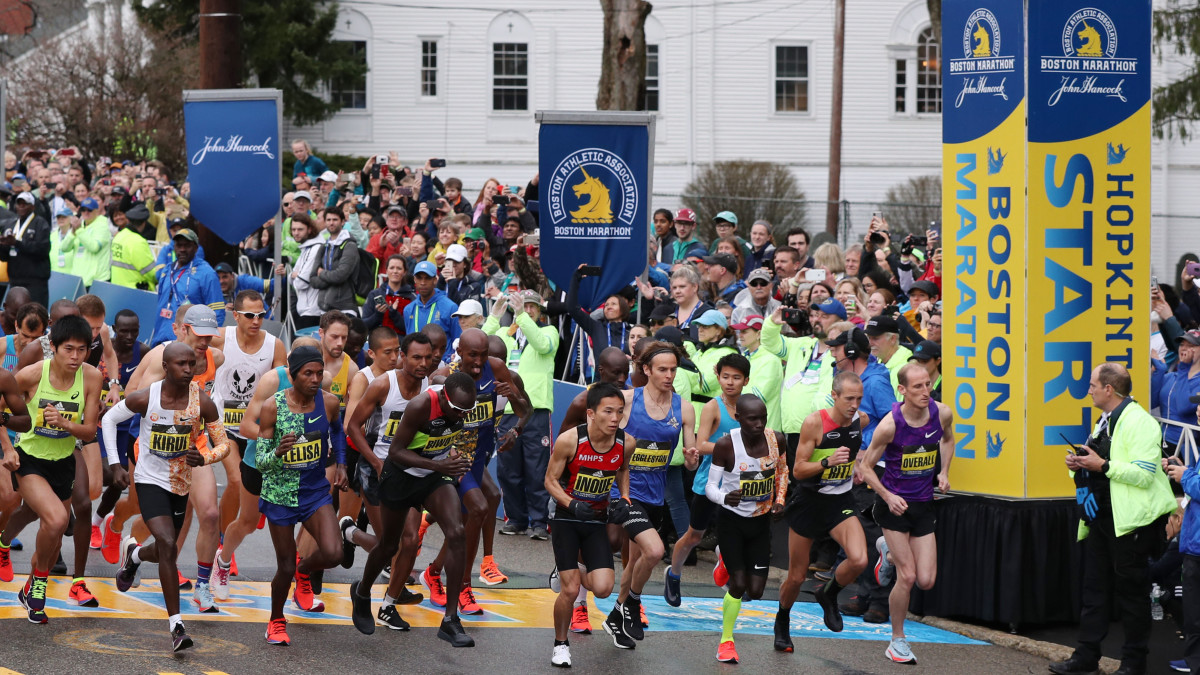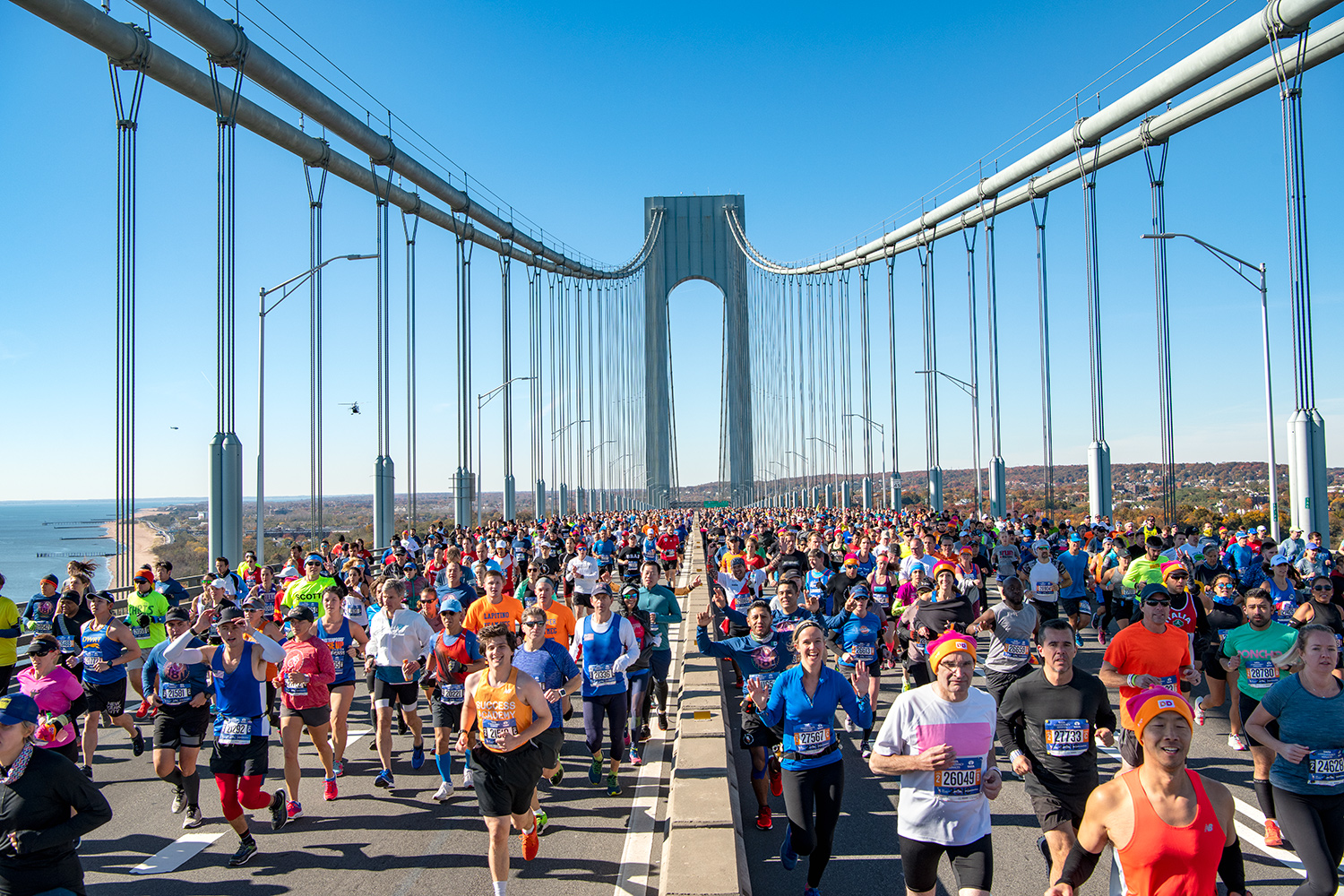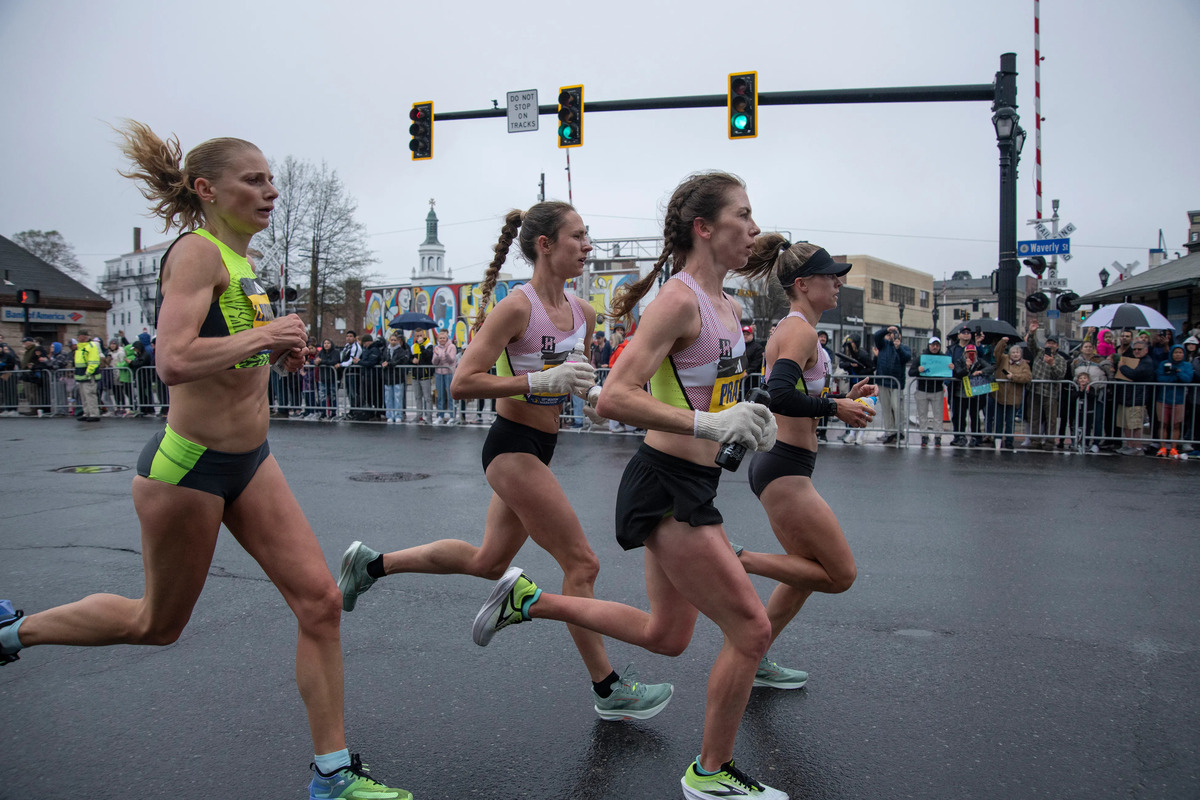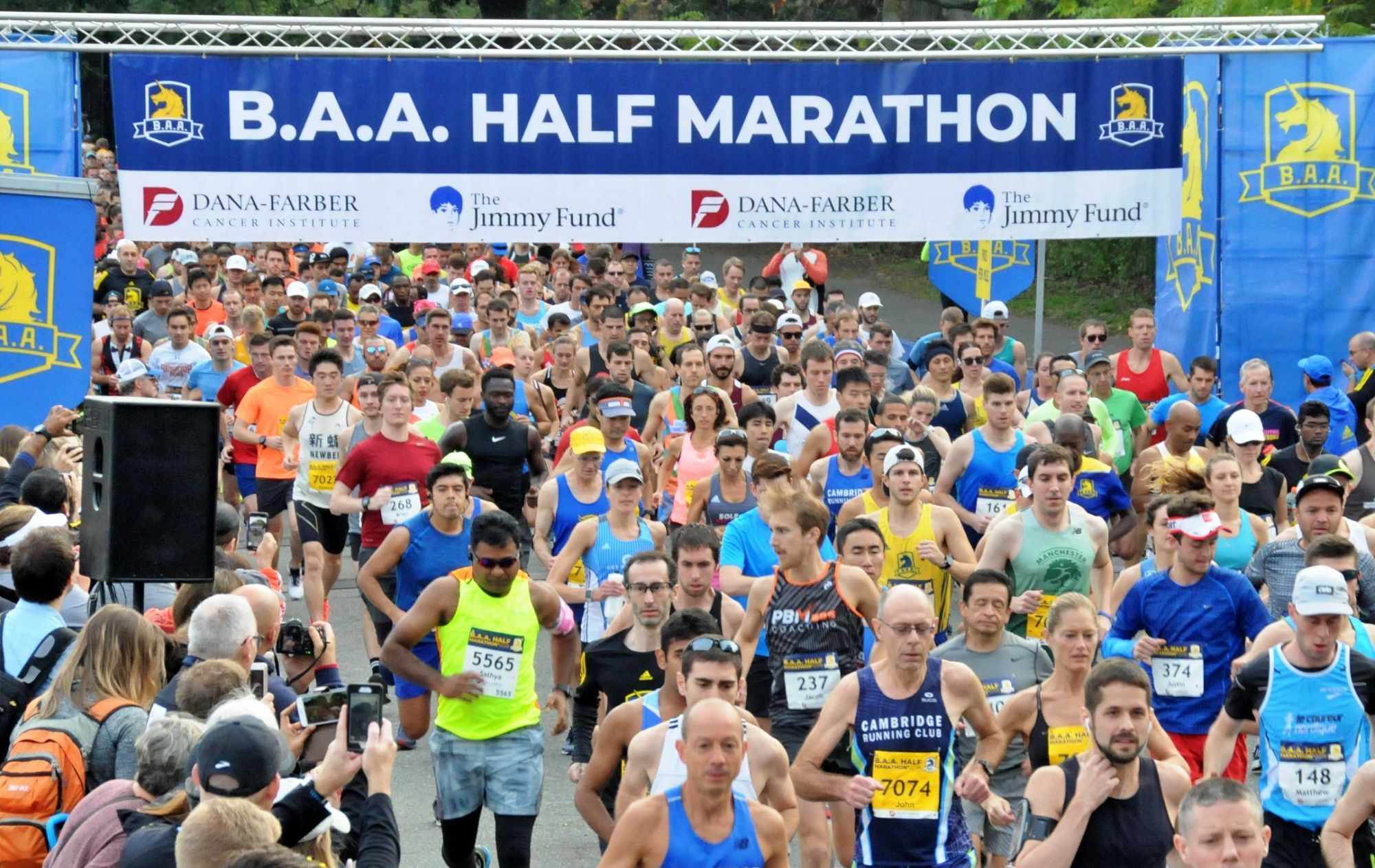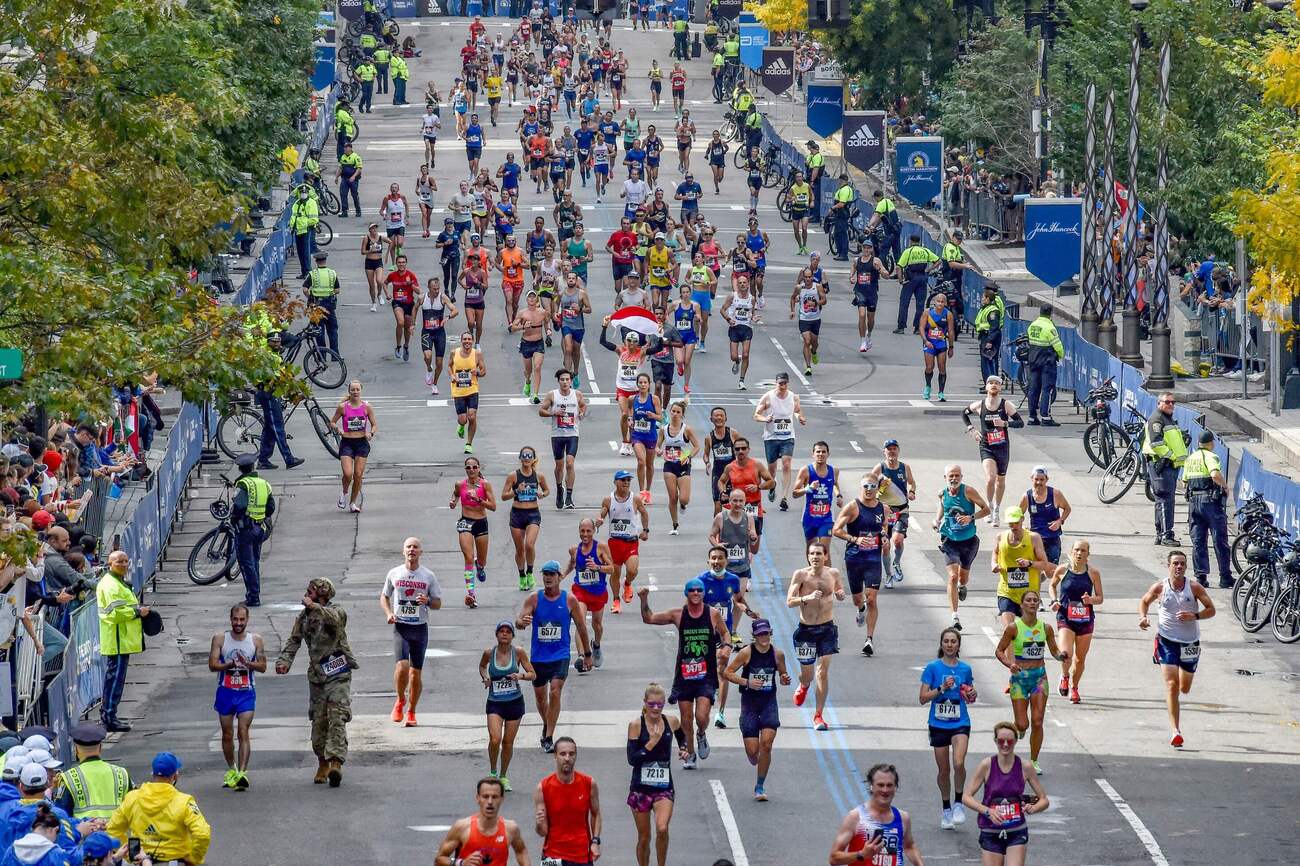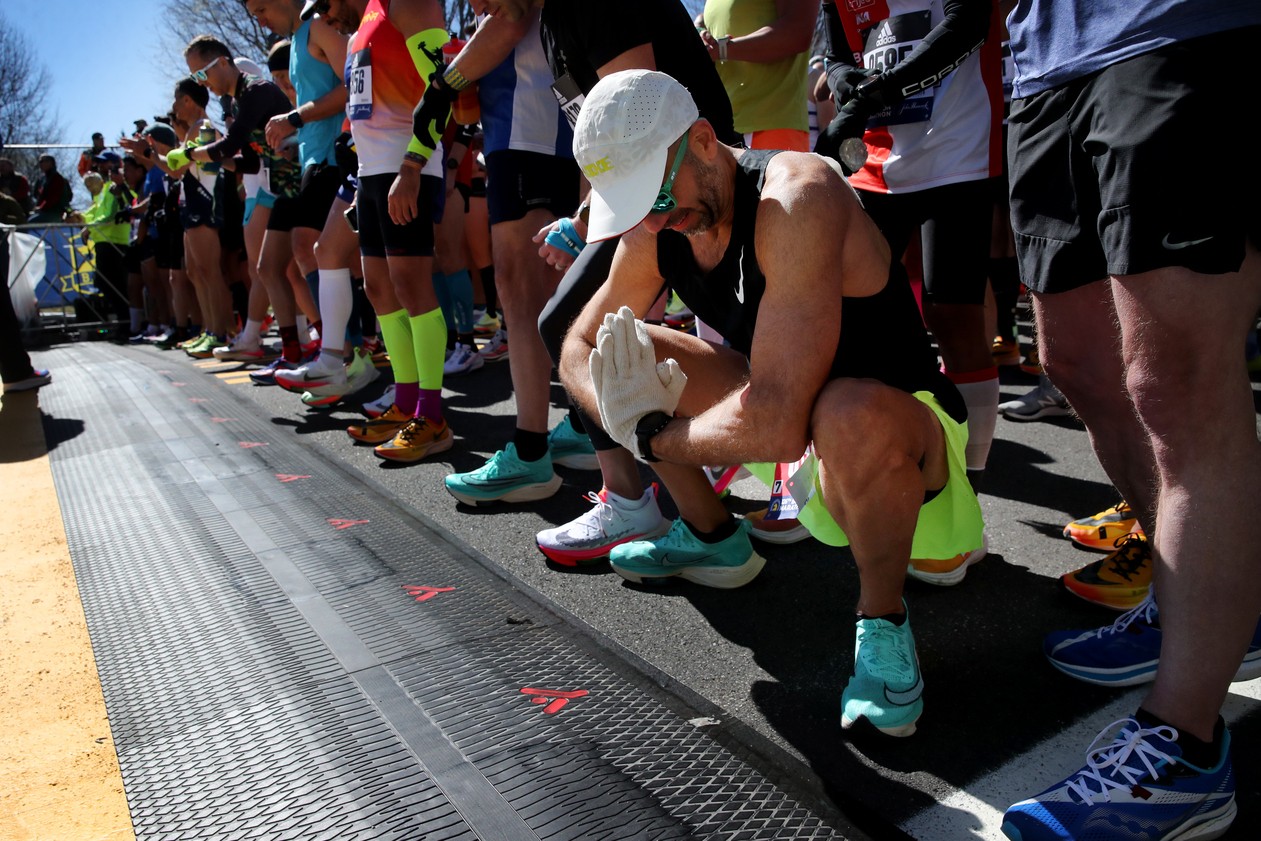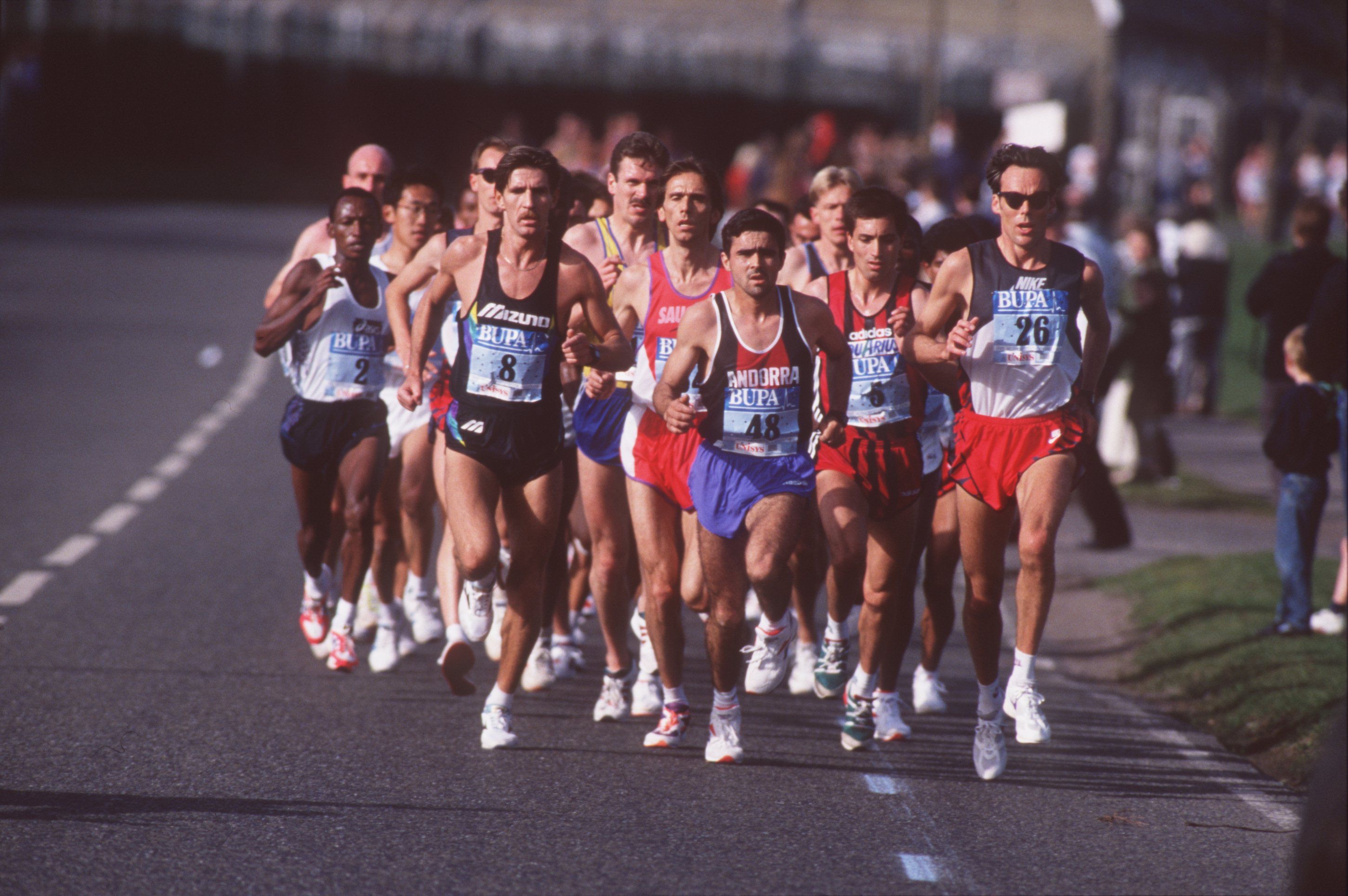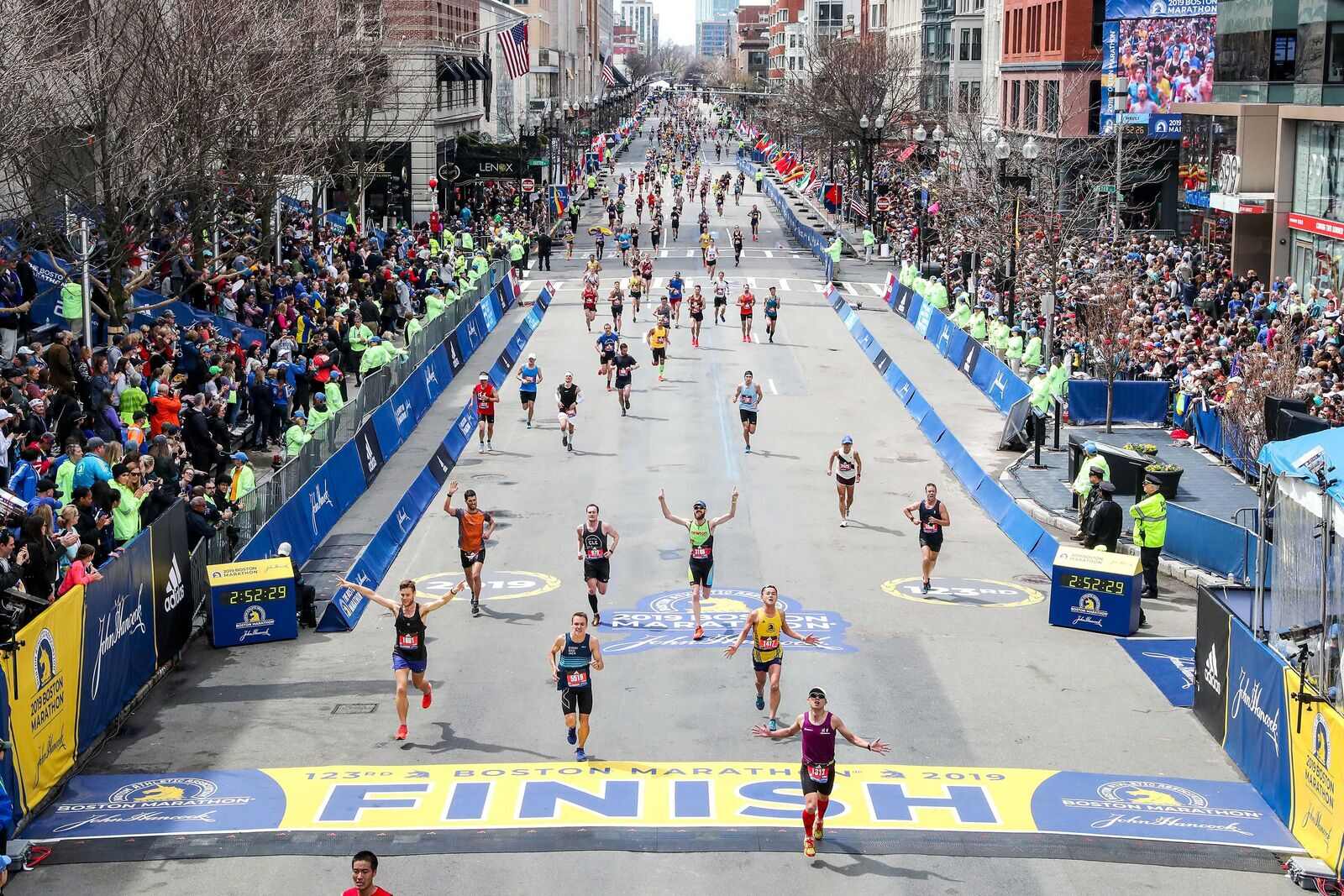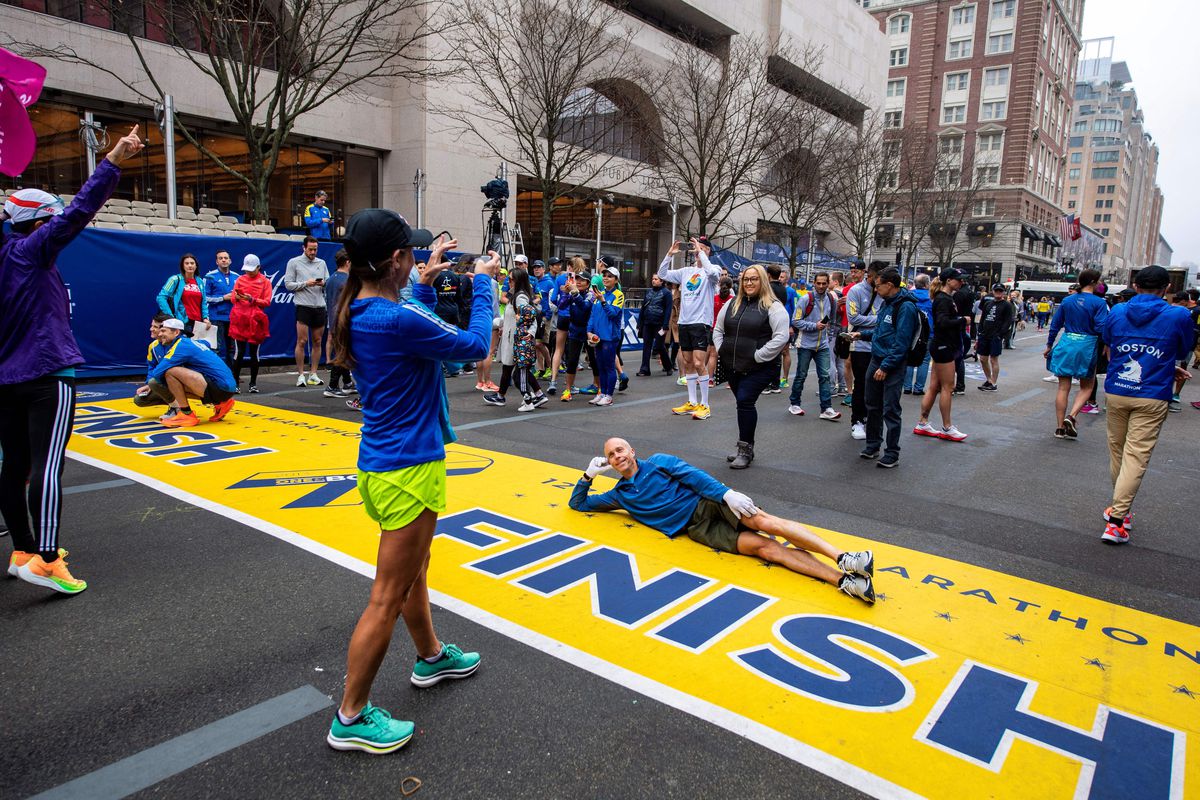Home>Misc>Featured>How Much Does It Cost To Run The Boston Marathon
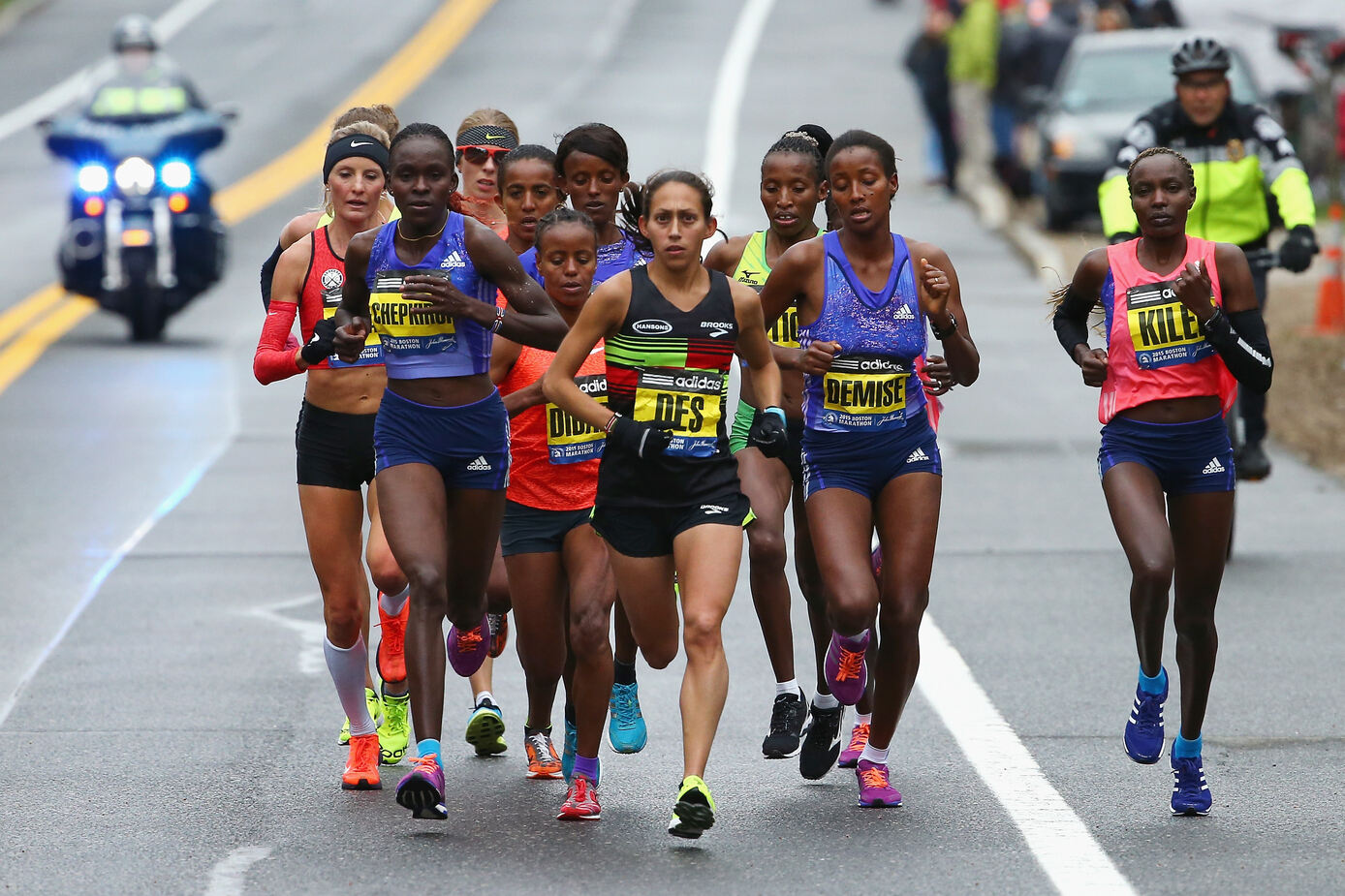

Featured
How Much Does It Cost To Run The Boston Marathon
Modified: January 22, 2024
Discover the cost of running the iconic Boston Marathon with our featured guide. Explore registration fees, training expenses, and more.
Introduction
Welcome to the world of marathon running where athletes push their limits both physically and mentally. The Boston Marathon, one of the most prestigious and iconic marathons in the world, attracts thousands of participants each year. From the thrill of crossing the finish line on Boylston Street to the cheers of the enthusiastic spectators, running the Boston Marathon is truly a unique experience. But before lacing up your sneakers and hitting the pavement, it’s essential to consider the costs involved in running this renowned race.
The cost of running the Boston Marathon can vary greatly depending on various factors such as training expenses, registration fees, travel and accommodation costs, transportation expenses, nutrition and hydration expenses, running gear, medical expenses, fundraising requirements, and additional miscellaneous costs. It’s crucial to have a clear understanding of these financial obligations to plan and budget accordingly.
While the Boston Marathon is a significant investment, it’s essential to remember that the experience and sense of accomplishment it provides are priceless. Whether you’re a seasoned marathoner or a first-time participant, the journey to the Boston Marathon takes dedication, determination, and financial commitment.
Training Expenses
Preparing for the Boston Marathon requires months of rigorous training, which can come with its own set of expenses. While the exact amount spent on training can vary depending on individual needs and preferences, it’s important to consider the following potential costs:
1. Coaching or Training Program Fees: Many runners choose to work with professional coaches or join training programs to optimize their performance and reduce the risk of injuries. The cost of coaching or training programs can range from a few hundred to several thousand dollars, depending on the duration and level of support provided.
2. Gym or Fitness Memberships: Maintaining overall fitness is crucial for runners, and memberships to gyms or fitness studios can be beneficial for cross-training and strength-building exercises. These memberships typically come with a monthly or annual fee.
3. Running Shoes: Investing in proper running shoes is essential to prevent injuries and ensure comfort during training. A good pair of running shoes can cost anywhere from $100 to $200, depending on the brand and features.
4. Apparel and accessories: Runners need appropriate clothing and accessories to train in different weather conditions. This can include items such as moisture-wicking shirts, shorts or leggings, socks, hats, and gloves. The cost of these items can add up over time.
5. Fitness Equipment: Some runners may choose to invest in fitness equipment such as treadmills, ellipticals, or stationary bikes for indoor training. These equipment purchases can vary significantly in cost.
6. Physical Therapy or Sports Massage: Regular visits to a physical therapist or sports massage therapist can help prevent injuries and aid in recovery. These sessions usually come with a fee, and the frequency of visits depends on individual needs.
It’s important to balance the training expenses with your own financial situation and prioritize your needs. Looking for discounts, sales, or second-hand equipment can help reduce the overall cost of training.
Registration Fees
Participating in the Boston Marathon requires runners to pay registration fees, which contribute to the organization and logistics of the event. The registration fees for the Boston Marathon can vary depending on several factors, including:
1. Qualification Status: Runners who meet the qualifying standards for their age and gender category are eligible for standard registration. The registration fee for qualified runners typically falls within a certain range.
2. Charity Entrants: Non-qualified runners have the option to enter the Boston Marathon through various charity programs. These entry options often require participants to fundraise a certain amount of money for a designated charity. The registration fees for charity entrants may differ from the standard registration fees.
3. International Participants: International runners who wish to participate in the Boston Marathon may have different registration fees compared to domestic participants. These fees often include additional logistic considerations such as international accommodations and support.
It’s important to note that the registration fees for the Boston Marathon are non-refundable and non-transferrable. It’s crucial to register promptly within the designated registration period to secure a spot in the race.
Additionally, it’s important to consider any additional costs associated with the registration process. These may include fees for timing chips, personalized bibs, or other race amenities.
Being aware of the registration fees and associated costs will help individuals plan and budget accordingly when considering running the Boston Marathon.
Travel and Accommodation Costs
For runners traveling from outside of the Boston area, travel and accommodation costs are a significant factor to consider when budgeting for the Boston Marathon. Here are a few aspects to keep in mind:
1. Transportation: The cost of transportation to and from Boston will depend on factors such as your location, mode of transportation, and the time of booking. This includes airfare, train or bus tickets, or gasoline expenses if driving. It’s recommended to book transportation well in advance to secure the best fares.
2. Accommodation: Finding suitable accommodation during the marathon weekend can be challenging due to high demand. Options include hotels, hostels, or renting private apartments. The cost of accommodation will vary depending on the location, amenities, and duration of stay. It’s advisable to book accommodation as soon as possible to secure the best rates and availability.
3. Meals and Dining: Budgeting for meals during your stay in Boston is essential. Consider the cost of dining out, groceries, and any additional snacks or supplements you may require. While exploring the local cuisine can be enjoyable, be mindful of your budget and choose dining options that fit within your financial plan.
4. Local Transportation: Getting around Boston during your stay may involve using public transportation, taxis, or ride-sharing services. It’s wise to include these costs in your travel budget to ensure smooth and convenient navigation throughout the city.
When planning for travel and accommodation costs, it’s advisable to compare prices, look for discounts or promotions, and consider sharing expenses with fellow runners or friends to reduce costs. Additionally, exploring alternative accommodations in nearby towns or cities can often provide more affordable options.
Transportation Expenses
When preparing for the Boston Marathon, it’s important to consider the various transportation expenses that may arise during your journey. These expenses can include:
1. Local Transportation: Getting around Boston during your stay may require using public transportation, such as buses, subway trains, or taxis. The costs of these modes of transportation can add up, so it’s a good idea to include them in your budget. Consider purchasing a transportation pass or card for convenience and potential savings.
2. Airport Transfers: If you are flying to Boston, you will likely need transportation from the airport to your accommodation. This can be in the form of a taxi, rideshare service, or airport shuttle. Researching the most cost-effective options and booking in advance can help you save money.
3. Gear and Equipment Transportation: If you plan on bringing your own running gear and equipment, you may need to transport it to Boston. This can involve baggage fees if traveling by plane, or shipping costs if sending your items ahead of time. Be sure to factor in these expenses when calculating your overall transportation costs.
4. Race Day Transportation: On the day of the marathon, runners may need transportation from their accommodation to the starting line. Some hotels offer shuttle services specifically for race participants, while others may require using public transportation or arranging for a taxi or rideshare service. Plan your race day transportation in advance to ensure you arrive at the starting line on time.
It’s important to research and compare transportation options to find the most cost-effective and convenient methods for your specific needs. Additionally, consider carpooling or sharing transportation expenses with other runners to help reduce costs. By including transportation expenses in your budgeting process, you can have a smoother and more financially manageable marathon experience.
Nutrition and Hydration Expenses
Proper nutrition and hydration are essential factors in preparing for and running a marathon like the Boston Marathon. Meeting your dietary and hydration needs throughout your training and on race day can come with certain expenses. Here are some considerations:
1. Groceries and Meal Planning: As a marathon runner, your nutritional needs may differ from those of the average person. You may need to purchase specific foods and ingredients to support your training and recovery. Planning your meals and shopping for groceries in advance can help you budget effectively and ensure you have the right fuel for your body.
2. Energy Gels, Sports Drinks, and Supplements: During long training runs and on race day, many runners rely on energy gels, sports drinks, electrolyte tablets, or other supplements to maintain energy levels and replenish nutrients. These products can come with a cost, so it’s important to consider these expenses when budgeting for your marathon journey.
3. Pre-Marathon Nutrition and Hydration: Leading up to the marathon, you may opt for pre-race meals or snacks tailored to enhance performance. These may include carb-loading meals or specific hydration strategies. Factor in these expenses when planning your nutrition and hydration approach before the race.
4. Aid Station Supplements: During the marathon, aid stations along the course provide water, sports drinks, and sometimes energy gels or snacks. However, it’s a good idea to have a plan in case you prefer or require additional nutrition or hydration options. Consider the potential costs of carrying your own supplies or purchasing additional products at aid stations.
While proper nutrition and hydration are vital for marathon performance, it’s important to find a balance that fits within your budget. Look for sales or discounts on sports nutrition products, consider homemade alternatives, and consult with a nutritionist or dietitian if needed to maximize your investment in this aspect of your marathon journey.
Running Gear and Equipment
Running the Boston Marathon requires having the right gear and equipment to ensure comfort, performance, and safety. While the specific gear and equipment needed may vary depending on individual preferences and conditions, here are some considerations:
1. Running Shoes: Investing in a reliable pair of running shoes is crucial to prevent injuries and maximize performance. It’s recommended to visit a specialty running store to get properly fitted for shoes that suit your running style and foot mechanics. The cost of running shoes can range from moderate to high-end, depending on the brand and features.
2. Apparel: Choose moisture-wicking clothing that is suitable for different weather conditions. This includes shirts, shorts or leggings, socks, and accessories like hats and gloves. While performance-oriented apparel can be expensive, it often offers benefits such as breathability, comfort, and UV protection.
3. Running Accessories: Additional accessories such as a running watch or fitness tracker, GPS devices, armbands, and hydration belts or vests can enhance your running experience and help track performance. These accessories come at varying price points, so it’s important to select ones that suit your needs and budget.
4. Safety Gear: Consider safety gear such as reflective clothing, headlamps, or LED lights for running in low-light conditions. These items prioritize your safety and visibility, but they may come with an extra cost.
5. Recovery Tools: Recovery tools like foam rollers, massage balls, or compression socks can aid in muscle recovery and reduce post-run soreness. While not necessarily essential, these tools can be beneficial, especially during intense training periods.
When it comes to purchasing running gear and equipment, it’s important to strike a balance between quality and budget. Look for sales or discounts, consider buying previous year’s models, and read reviews to make informed choices. Remember that investing in the right gear can enhance your overall running experience and performance.
Medical Expenses
As with any physical activity or sport, there is always the potential for medical expenses when participating in the Boston Marathon. While the physical demands of marathon training and the race itself can vary from person to person, it’s crucial to be prepared for potential medical expenses that may arise. Here are a few considerations:
1. Medical Check-ups: It’s advisable to visit your healthcare provider before beginning a rigorous training program or participating in a marathon. This may involve a general check-up, discussing any pre-existing conditions or concerns, and obtaining any necessary vaccinations or medications. The cost of these medical visits will depend on your insurance coverage and deductibles.
2. Injury Prevention: Taking preventative measures to avoid injuries is essential during training. This may include regular visits to a physical therapist, chiropractor, or sports medicine specialist. The cost of these appointments and any recommended treatments, such as massage therapy or acupuncture, can add up.
3. Injuries and Treatment: Unfortunately, injuries can occur during training or the race itself. Depending on the severity of the injury, medical expenses can include doctor visits, diagnostic tests (e.g., X-rays or MRI scans), physical therapy, and medication. It’s essential to have health insurance coverage to help mitigate these costs.
4. Race-Day Medical Services: The Boston Marathon provides medical support along the course and at the finish line. However, if you require additional medical attention during the race, such as first aid supplies or emergency medical services, there may be associated costs. Again, having health insurance coverage is crucial for managing these potential expenses.
It’s important to note that while medical expenses can be a part of marathon participation, taking proper precautions, listening to your body, and seeking medical advice when needed can help reduce the likelihood of significant medical expenses. Investing in your health and well-being is essential for a successful and enjoyable marathon experience.
Fundraising Requirements
For runners who do not qualify for the Boston Marathon based on their finishing times, participating through a charity program is an alternative option. These charity entrants are required to meet specific fundraising requirements, which can add to the overall cost of running the Boston Marathon. Here are a few things to consider:
1. Fundraising Commitments: Charity entrants must commit to raising a certain amount of money for their designated charity. The specific fundraising requirements vary depending on the organization and the number of available charity spots. It’s important to carefully review the fundraising commitment before committing to the charity program.
2. Personalized Fundraising Page: To aid in the fundraising efforts, most charities offer personalized online fundraising pages. These pages allow runners to share their story, track donations, and promote their cause. While there is typically no cost associated with setting up the page, it’s important to maximize its potential by utilizing social media, email campaigns, and personal outreach.
3. Fundraising Events: Charities often organize fundraising events to support their runners. These events can include charity auctions, benefit dinners, or local community initiatives. While participation in these events may not be mandatory, it’s worth considering the associated costs and time commitment when planning your fundraising strategy.
4. Donations and Support: Reaching out to friends, family, co-workers, and your larger community is essential for meeting your fundraising goals. It’s important to remain diligent and creative in your approach, whether it’s through personal requests, social media campaigns, or seeking corporate sponsorships. However, it’s important to be mindful of any costs incurred in promoting or managing your fundraising efforts.
Before committing to a charity program, carefully consider your capacity to meet the fundraising requirements, as falling short may result in personal financial obligations. Make sure to review the charity’s fundraising policies and guidelines, seek advice from experienced fundraisers, and create a realistic plan to maximize your fundraising success.
Miscellaneous Costs
In addition to the aforementioned expenses, there are several miscellaneous costs that runners should be mindful of when budgeting for the Boston Marathon. These costs may vary depending on individual circumstances and preferences. Here are a few to consider:
1. Training and Race-Day Accessories: It’s common for runners to invest in additional accessories to enhance their training and race experience. This may include items such as GPS watches, heart rate monitors, compression sleeves, recovery tools, or even motivational books and audio programs. While not essential, these accessories can enhance your overall marathon journey.
2. Parking and Baggage Storage: If you plan on driving to the marathon or have a need for baggage storage, be sure to account for any associated fees. Parking fees near the starting line or at the finish line can add up, and some race services may charge for baggage storage.
3. Spectator Expenses: If you have family or friends attending the marathon to support you, consider any additional expenses they may incur. This may include travel costs, accommodation, meals, and transportation. While not directly your personal expenses, it’s important to factor in these costs as they can impact your overall budget.
4. Celebration and Memorabilia: After completing the Boston Marathon, many runners like to celebrate their accomplishment with friends and family. This may involve post-race meals, drinks, or even purchasing Boston Marathon merchandise or commemorative items. While these expenses are optional, they can contribute to the overall experience and sense of achievement.
5. Insurance and Travel Protection: It’s always recommended to have comprehensive travel insurance that covers potential medical expenses, trip cancellations, or unexpected events. This can help protect you financially should something unforeseen occur before or during your trip to the Boston Marathon.
It’s important to assess your personal preferences and priorities when considering miscellaneous costs. While some expenses may enhance your overall experience and make the journey more memorable, it’s crucial to strike a balance between staying within your budget and enjoying the additional aspects of the marathon experience.
Conclusion
The Boston Marathon is an exciting and prestigious event that requires both physical and financial commitment. When considering the costs associated with running the Boston Marathon, it’s essential to take into account various factors such as training expenses, registration fees, travel and accommodation costs, transportation expenses, nutrition and hydration expenses, running gear and equipment, medical expenses, fundraising requirements, and miscellaneous costs.
While the financial aspect of running the Boston Marathon may seem daunting, it’s important to remember that the experience and sense of accomplishment it provides are invaluable. Set a realistic budget and explore opportunities to minimize costs, such as seeking discounts, comparing prices, or sharing expenses with fellow runners or supporters.
Proper planning and budgeting can help ensure that you can fully enjoy the marathon journey without financial stress. Do your research, seek advice from experienced runners, and be mindful of your own financial capabilities when making decisions regarding your expenses.
Running the Boston Marathon is not just about the financial investment but also about the dedication, training, and determination required to reach the finish line. Embrace the process, focus on your goals, and take pride in knowing that you are part of a remarkable event that celebrates the physical and mental strength of marathon runners.
